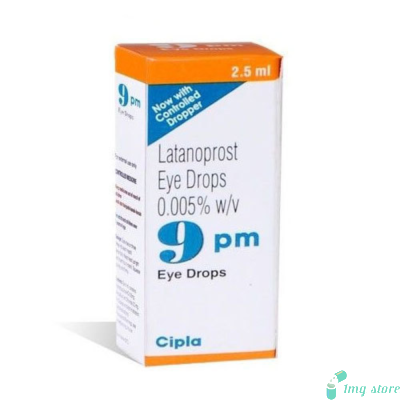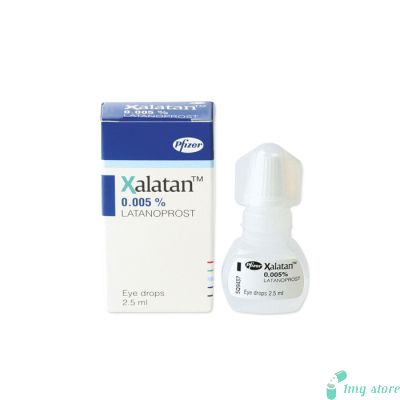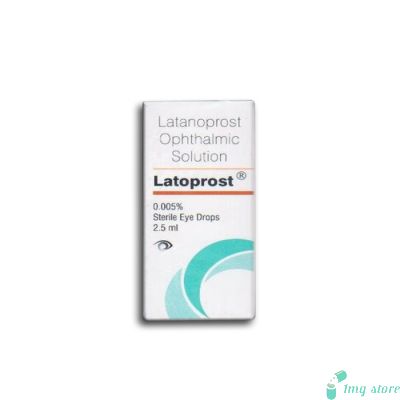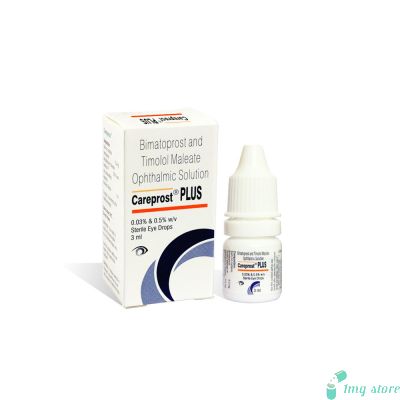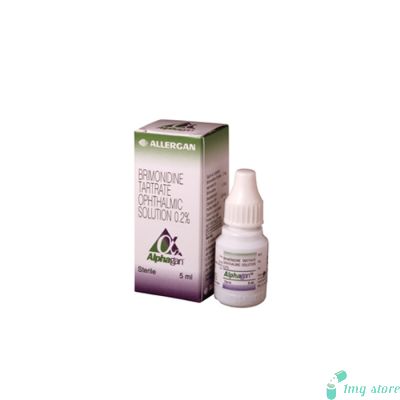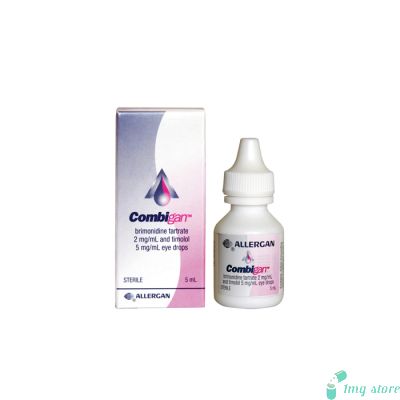Azopt Eye Drop (Brinzolamide)
Brinzolamide, commonly marketed under the brand name Azopt, is a prescription medication available in the form of eye drops. This ophthalmic solution is primarily used to treat elevated intraocular pressure (IOP) in patients with open-angle glaucoma or ocular hypertension.
What is Azopt Eye Drop (Brinzolamide)?
patients with open-angle glaucoma or ocular hypertension. Elevated IOP is a major risk factor for developing these eye conditions, and Brinzolamide plays a crucial role in reducing IOP, thus helping to prevent vision loss and manage Eye conditions effectively.
In this comprehensive medication guide, we will delve into the essential aspects of Brinzolamide Eye Drops, including dosage information, missed dose and overdose considerations, common uses, potential side effects, precautions to be observed while using this medication, and interactions with other drugs. By understanding these key points, patients and healthcare providers can make informed decisions regarding the use of Brinzolamide Eye Drops for the treatment of glaucoma and ocular hypertension. If you have been prescribed Brinzolamide Eye Drops for Glaucoma, you can conveniently obtain them from 1mgstore.com, a trusted online platform. Make sure to provide your prescription information and follow the recommended usage instructions for optimal results.
Brinzolamide Dosage Information
Brinzolamide Eye Drops are available as a sterile ophthalmic solution in a concentration of 1%. The typical recommended dosage for adults is one drop of Brinzolamide Eye Drops administered into the affected eye(s) two times daily, approximately 12 hours apart. It is important to follow the specific instructions provided by your healthcare provider, as individual dosages may vary based on the severity of your condition and other factors.
Missed Dose:
If you forget to administer a dose of Brinzolamide Eye Drops, apply it as soon as you remember. However, if it is close to the time for your next scheduled dose, skip the missed dose and continue with your regular dosing schedule.
Do not double the dose to compensate for a missed one, as this may increase the risk of side effects and complications.
Overdose:
In the event of an accidental overdose, immediately seek medical attention or contact your local poison control center.
Overdosing on Brinzolamide Eye Drops may result in symptoms such as severe eye irritation, burning, stinging, blurred vision, and discomfort. It is essential to exercise caution and adhere to the prescribed dosage to avoid overdose.
Brinzolamide Eye Drops Prescription:
Brinzolamide Eye Drops is a prescription medication used to lower intraocular pressure in conditions like glaucoma and ocular hypertension. It's crucial to consult with a healthcare provider to obtain a prescription before using this medication.
Buy Brinzolamide Eye Drops:
You can purchase Brinzolamide Eye Drops from reputable online pharmacies like 1mgstore.com, but only with a valid prescription. Ensure you follow the guidance of your healthcare provider and select a reliable source for your medication.
Before using Azopt Eye Drop (Brinzolamide), there are several precautions you should be aware of:
- Allergies: Inform your healthcare provider if you have a history of allergies to sulfa drugs or any other medication, as Brinzolamide contains a sulfonamide component that may cause allergic reactions.
- Contact Lenses: Remove contact lenses before using the eye drops and wait at least 15 minutes before reinserting them. The preservatives in the eye drops may affect contact lens tolerance.
- Pregnancy and Breastfeeding: Discuss the use of Brinzolamide with your healthcare provider if you are pregnant, planning to become pregnant, or breastfeeding. The safety of Brinzolamide during pregnancy and breastfeeding has not been well established.
- Liver and Kidney Function: Individuals with impaired liver or kidney function should use Brinzolamide with caution, as the medication may be metabolized differently in these cases.
- Driving and Operating Machinery: Temporary blurred vision can occur after using Brinzolamide Eye Drops. It is advisable to avoid activities that require clear vision, such as driving or operating heavy machinery until your vision has returned to normal.
Brinzolamide Eye Drops, or Azopt, are primarily prescribed for the following purposes:
- Open-Angle Glaucoma: Brinzolamide is an effective medication for managing open-angle glaucoma, a common type of glaucoma characterized by increased IOP. By reducing intraocular pressure, Brinzolamide helps slow down the progression of the disease and preserve vision.
- Ocular Hypertension: Individuals with Ocular Hypertension, a condition marked by elevated eye pressure without optic nerve damage, may be prescribed Brinzolamide Eye Drops to prevent the development of glaucoma.
- Combination Therapy: Brinzolamide is sometimes used in combination with other eye medications to enhance its effectiveness in lowering IOP.
- Post-Operative Care: It can be used in post-operative care following certain eye surgeries to reduce the risk of increased IOP.
- Pediatric Use: In some cases, healthcare providers may prescribe Brinzolamide for children with specific eye conditions. However, the safety and efficacy of the medication in pediatric patients may vary, so it should be used with caution under medical supervision.
Some of the Secondary Effects of Azopt Eye Drop (Brinzolamide)
Like any medication, Brinzolamide Eye Drops may cause side effects in some individuals. It is important to note that not everyone will experience these side effects, and some may experience them to a lesser degree. Common side effects associated with Brinzolamide include:
- Eye Irritation: Mild to moderate eye irritation, burning, or stinging sensation upon application of the drops is relatively common.
- Blurry Vision: Temporary blurriness or altered vision may occur immediately after using the eye drops. This effect usually subsides quickly.
- Eye Redness: Some individuals may experience temporary redness in the eyes after applying the drops.
- Bitter Taste: A bitter taste may be noticed in the mouth, as the eye drops can enter the tear ducts and be swallowed.
- Dry Eyes: In some cases, Brinzolamide may contribute to dry eyes, although this is less common.
It is important to inform your healthcare provider of any side effects, especially if they persist or worsen over time. Additionally, if you experience any severe or uncommon side effects, seek medical attention promptly.
Frequently Asked Queries About Azopt Eye Drop (Brinzolamide)
Q1. Can I wear contact lenses while using Brinzolamide Eye Drops?
Answer: It is advisable to remove contact lenses before using Brinzolamide Eye Drops. Wait for at least 15 minutes after applying the drops before reinserting your lenses to prevent potential irritation.
Q2. Is Brinzolamide safe for pregnant women?
Answer: The safety of Brinzolamide during pregnancy has not been conclusively established. Pregnant women should consult their healthcare provider before using this medication.
Q3. Can Brinzolamide Eye Drops cause allergic reactions?
Answer: Brinzolamide contains a sulfonamide component that may trigger allergic reactions in some individuals. If you have a history of sulfa drug allergies, inform your healthcare provider before using this medication.
Q4. What should I do if I experience blurred vision after using Brinzolamide?
Answer: Temporary blurred vision is a common side effect. Avoid activities like driving or operating machinery until your vision returns to normal, which usually occurs shortly after using the drops.
Q5. Are there any dietary restrictions while using Brinzolamide?
Answer: There are no specific dietary restrictions associated with Brinzolamide Eye Drops. However, it's essential to maintain a healthy diet and stay hydrated to support overall eye health and well-being.
Here are five key points regarding drug interactions with Azopt Eye Drop (Brinzolamide)
Brinzolamide Eye Drops may interact with other medications or substances, potentially affecting their effectiveness or increasing the risk of side effects.
- Carbonic Anhydrase Inhibitors: Concomitant use of Brinzolamide with other carbonic anhydrase inhibitors, such as acetazolamide or dorzolamide, may lead to an increased risk of side effects and reduced efficacy in lowering IOP. It is important to inform your healthcare provider if you are using or have used any other carbonic anhydrase inhibitors.
- Beta-Blockers: Combining Brinzolamide with systemic beta-blockers may have an additive effect in lowering blood pressure. Patients using both medications should be closely monitored for hypotension (low blood pressure).
- Oral Sulfa Drugs: Brinzolamide contains a sulfonamide component, and there is a potential for cross-reactivity with oral sulfa drugs. Patients with known sulfa drug allergies should use Brinzolamide with caution and under medical supervision.
- Topical Eye Medications: When using multiple eye medications, it is essential to administer them at least 10 to 15 minutes apart to prevent potential dilution or reduced effectiveness. Follow your healthcare provider's guidance on the proper timing of multiple eye medications.
- Other Medications: Inform your healthcare provider about all prescription and over-the-counter medications, vitamins, and herbal supplements you are taking. Some medications may interact with Brinzolamide, so your healthcare provider can assess potential interactions and adjust your treatment plan accordingly.
| Manufacturer | : | Novartis India Ltd |
| Equivalent Brand | : | Azopt |
| Generic Search | : | Brinzolamide |









